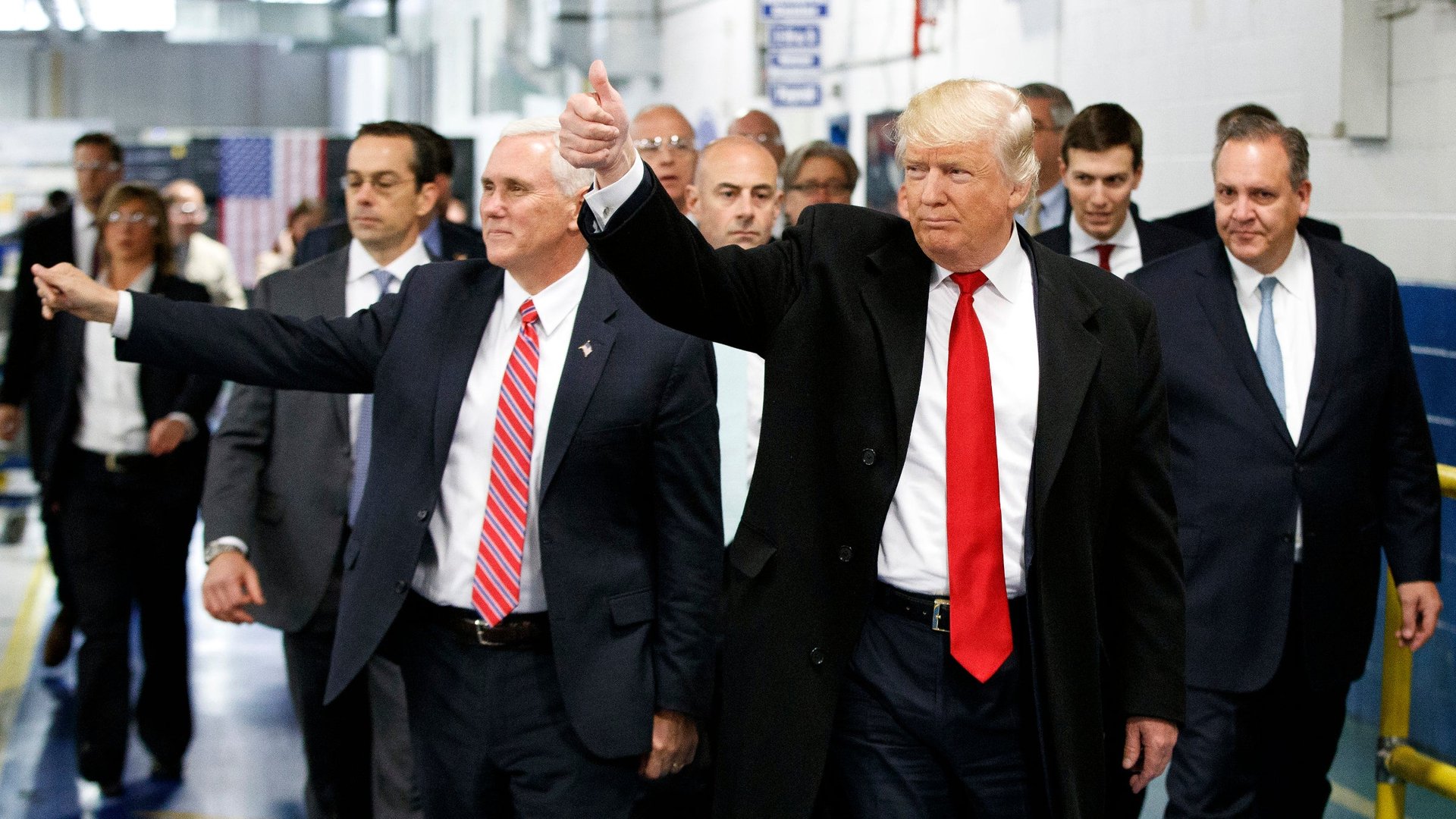Under Trump, US jobs are moving overseas even faster than before
“We’re just shipping company after company after company is leaving this country and leaving jobs behind,” president Donald Trump said on the campaign trail last year. “And I’m going to get it stopped.”


“We’re just shipping company after company after company is leaving this country and leaving jobs behind,” president Donald Trump said on the campaign trail last year. “And I’m going to get it stopped.”
So far, not so good. A group that advocates for federal workers says government records show (pdf) more than 10,000 jobs at federal contractors have been sent over overseas since Trump was elected. That’s more than double the average annual amount during Barack Obama’s presidency. The organization, Good Jobs Nation, funded by unions and faith groups, wants the White House to hold these contractors accountable.
All told, in the year since Trump was elected, more than 93,000 jobs have been certified by the Department of Labor as lost to outsourcing or trade competition, slightly higher than the average of about 87,000 in the preceding five years. But federal contractors made up 10% of that number, rather than the previous average of 4%. That suggests companies that work for the government like General Motors, Boeing and United Technologies aren’t worried about political repercussions from the man in the White House.
Consider United Technologies, which is the parent company of Carrier, a maker of air conditions and heating equipment. Carrier became famous shortly after the election when Trump loudly and personally intervened to “prevent” the company from outsourcing jobs to Mexico by offering it tax breaks. Since the spotlight has shifted along with Trump’s limited attention span, Carrier announced more layoffs, including 215 after the holidays. Local labor leaders say they feel betrayed.
The reality is that the president has little leeway in federal contracting law to prevent companies, even those hired by the government, from shifting jobs overseas.
To actually protect good jobs in the United States, major fixes are needed to US trade and tax laws that make it profitable for companies to shift production and earnings overseas, as well as more investment in training workers for jobs that add more value. While the US currently enjoys low unemployment and (slowly) rising wages, low-skill workers still struggle to find jobs that can support a family or afford the education for work that does. It’s not clear, however, that the Trump agenda is going to bring them much relief.
Consider the tax bill being debated on the floor of the senate today. While the focus of the debate is on how much debt the bill will add, one consequence of the law will be making it easier for companies to shift jobs overseas. The bill would stop taxation on US companies’ routine foreign earnings, but experts say it is has not put in sufficient guardrails to prevent jobs from moving overseas.
Companies must pay 20% on their earnings at home, and a 10% minimum tax on any earnings that exceed the firm’s “routine” earnings abroad from investments in factories and equipment abroad. While this is designed to target companies shifting intellectual property overseas to shell corporations, tax expert Steven Rosenthal says it creates a “perverse incentive” to invest more in “routine” foreign production to lower its effective tax rate on foreign earnings. “To put it another way, the firm would pay $1 million in tax on $20 million in foreign profits but $4 million on the same amount of earnings from a factory in the US,” Rosenthal writes.
Faced with those incentives, it’s not hard to imagine what major multinationals will do. American workers, however, will face a tougher adjustment to the new rules Trump and Congressional Republicans are writing.